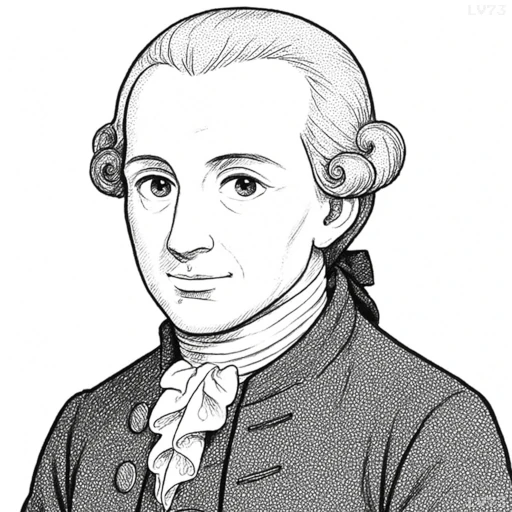“Nothing is divine but what is agreeable to reason.”

- April 22, 1724 – February 12, 1804
- Born in Germany (East Prussia)
- Philosopher
table of contents
Quote
“Nothing is divine but what is agreeable to reason.”
Explanation
In this quote, Immanuel Kant argues that reason is the ultimate standard for determining what is divine or moral. According to Kant, the divine or the sacred is not something that exists outside of reason or is based on blind faith, but rather it must align with the rational principles of human thought. For Kant, reason is the guiding force that allows individuals to distinguish between right and wrong, and anything deemed divine or sacred must be consistent with rational, moral laws. This perspective emphasizes that true moral authority and spiritual insight come not from tradition or external religious authorities, but from the rational capacity within every individual to discern what is ethically correct and morally binding.
In the modern context, this idea challenges forms of blind faith or irrational belief systems that may conflict with principles of reason and human rights. Kant’s philosophy suggests that moral and spiritual guidance should be rooted in rational reflection and universal principles, rather than superstition or arbitrary religious doctrines. For example, many contemporary ethical debates—such as those surrounding human rights, justice, and environmental responsibility—are approached with a foundation of reason that seeks to apply moral principles universally, regardless of religious affiliation. Kant’s view encourages individuals to evaluate moral and spiritual beliefs based on their rational coherence and their alignment with universal principles of justice and respect for human dignity.
Historically, Kant’s assertion reflects the Enlightenment focus on reason as the highest authority, particularly in contrast to traditional religious dogma. During the Enlightenment, philosophers were challenging the dominance of religious authority and instead promoting the use of human reason to understand both the natural world and moral questions. Kant’s philosophy sought to rationalize religion by arguing that genuine religious beliefs should be consistent with the ethical principles that reason dictates. This idea influenced the development of modern secular ethics, which seeks to ground moral principles in universal reason rather than religious commandments. Today, Kant’s assertion continues to influence debates about the relationship between religion and morality, as well as ethical relativism versus moral absolutism, urging that true moral authority must be guided by reason and rational reflection.
Would you like to share your impressions or related stories about this quote in the comments section?
